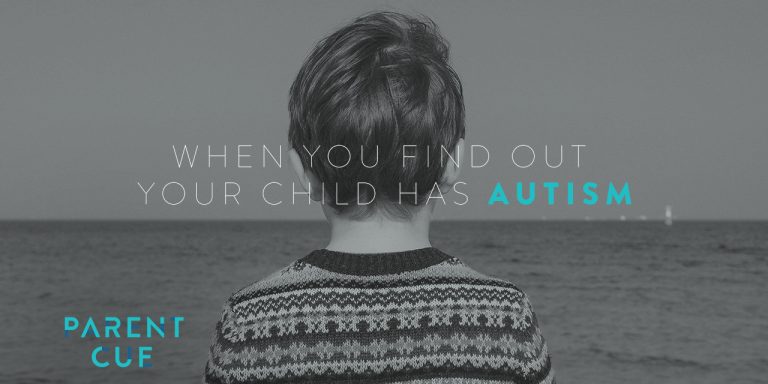
The day I discovered I was pregnant with our first child was one of the happiest days of my life. My husband and I had been married for three years and were ready to expand our party of two. My pregnancy was a healthy one, and I was thrilled about our next stage of life. Brayden, whom we affectionately call Bray, was born a perfectly healthy baby and developed into a sweet, chatty, and constantly smiling toddler. All was well in our world.
And then life seemed to come to a screeching halt. After months of lagging development, a complete loss of speech, and a host of unanswered questions, Bray was ultimately diagnosed at three years old with Autism Spectrum Disorder (ASD), also known as autism. And suddenly we were overwhelmed with negative emotions and thoughts. At times, we felt like everything was unraveling, including us.
We quickly went from daycare workers requesting to babysit for free because of our “well-behaved child,” to unfriendly stares from strangers in restaurants. Navigating the emotional, financial, and complex medical issues associated with this diagnosis was taxing. When people ask what those early days were like, three words immediately come to mind:
Disruptive . . . chaotic . . . uncertain.
Visiting one specialist after another, our world devolved into speech, equine, occupational, and behavioral therapies, along with dietary supplements and specialized diets. Worst yet, our hopes and dreams for our family had been interrupted, leaving us wondering what the future held.
Even as a member of the mental health profession, I, like so many, knew very little about autism. Autism is a neurodevelopmental disorder manifesting in significant social, communication, and behavioral challenges and affects 1 in 68 children in the U.S. The word “spectrum” reflects the diverse ways in which symptoms can manifest, ranging from mild language or social problems, to very extreme, aggressive behaviors.
The year following the diagnosis was the toughest. I was locked in survival mode, determined to do everything I could to give my son the best life possible. Yet, even with my dogged determinism, a constellation of worries continuously filled my head: Would anyone want to be his friend? What would his transition into adulthood be like? Who would care for him when my husband and I were gone? It was difficult to assess and prepare for what lay ahead.
As any parent of a child on the spectrum will attest, autism changes everything. The diagnosis changes the dynamics of your marriage, the way you socialize with friends, and even relationships with your family. An added complication is that autism is understood so little that it often leaves affected families feeling isolated and alone.
Autism also changes the way you parent. Let’s face it, parenting, in general, is tough. Parenting a child with autism can be particularly demanding. The thought of entering a grocery store or a restaurant can be terrifying. Gone are the traditional parenting books about effective discipline practices, and in comes the behavioral protocols about potty training at age 5! Observing my friends’ kids playing freely at the playground while simultaneously watching my child exclude himself broke my heart every time. Life was tricky, often trying, and there were many days when we felt we were in over our heads.
My husband and I quickly discovered that placing unnecessary energy on that which was beyond our control was defeating. What was empowering was focusing on what we could do and realizing that we didn’t have to do it alone.
Placing unnecessary energy on what is beyond your control is defeating.
Click To Tweet
In my next blog post, I will break down seven practical strategies that helped us to cope with everyday obstacles associated with parenting a child with autism. Stay tuned.
Bray is now six, he’s regained some language, and his behaviors have greatly improved. With a lot of patience and perseverance, Bray has returned to that sweet little boy with the big smile. However, my concerns for him haven’t entirely vanished. The question remains: Who will care for him and help him make decisions when we’re gone? Neurotypical children need their parents less as they age. This isn’t the case for many children with ASD. Anxiety comes when we linger too far into the future. Peace comes when we turn our thoughts towards God and remain in the present. Throughout this journey, our faith has sustained us. I pray for my son’s healing, and now Brayden prays for his own healing! Even through extreme parenting situations, and perhaps because of those tough experiences, God has granted us a greater capacity to find moments of joy and contentment in Brayden and in God’s continual presence.
Peace comes when we turn our thoughts towards God and remain in the present.
Click To Tweet
What load are you carrying that feels beyond your capacity as a parent?
Source: The Parent Cue





